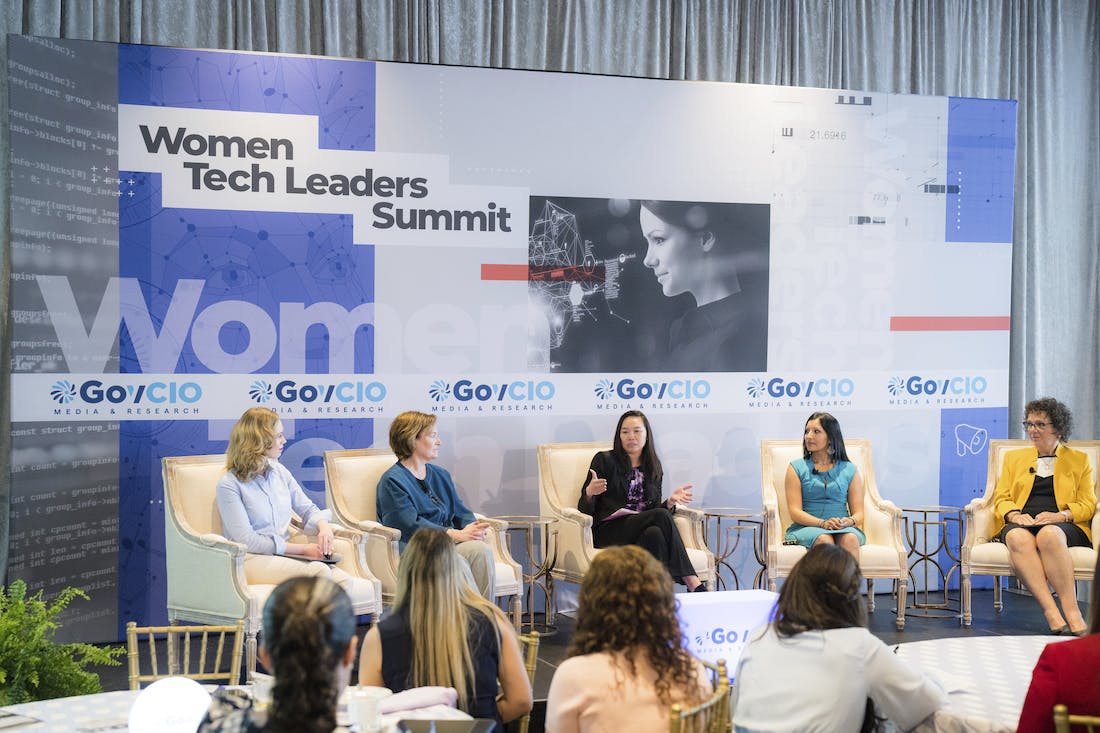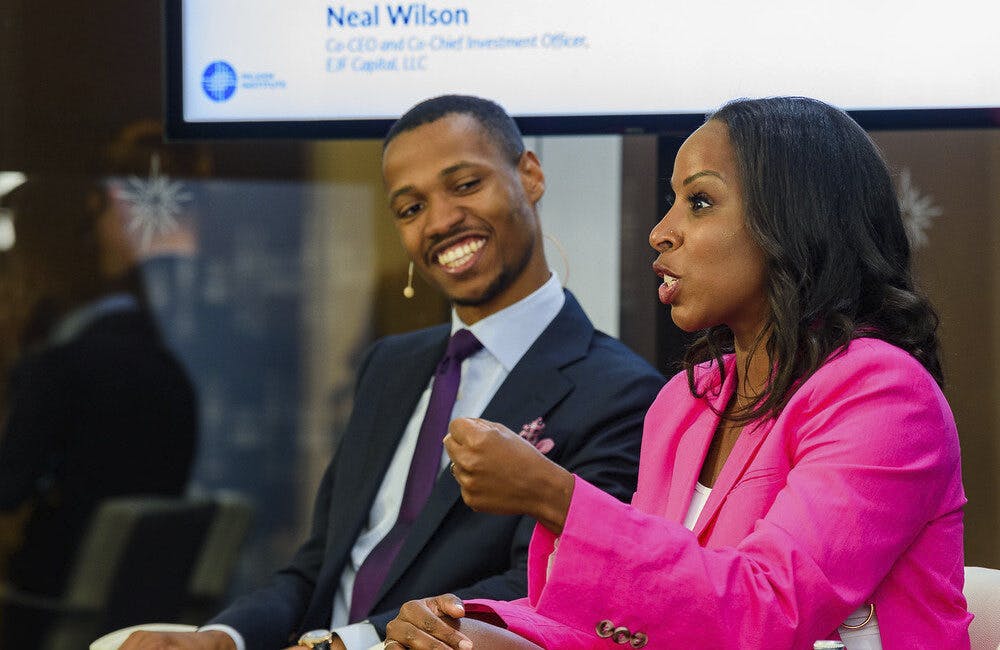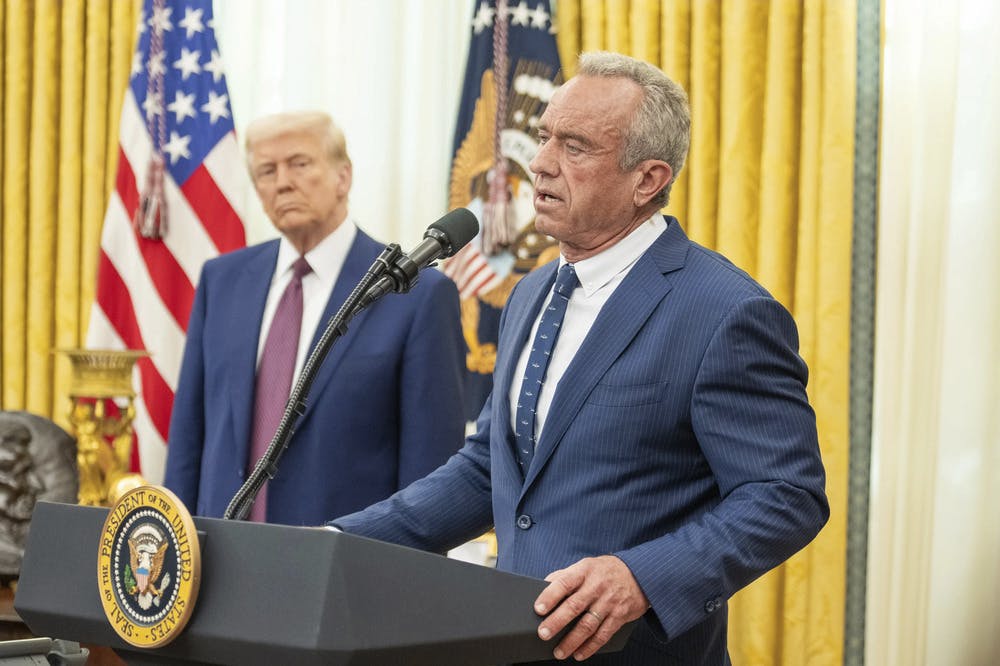Mentors Can Help Bridge Diversity Gaps in Federal Technology
Mentors Can Help Bridge Diversity Gaps in Federal Technology

In a male-dominated industry like technology, mentors can help provide women with necessary confidence and knowledge to combat a growing gender diversity gap.
Women technology leaders from the Defense Information Systems Agency (DISA), National Institutes of Health (NIH), Cybersecurity and Infrastructure Security Agency (CISA) and Maximus, all had a similar message on a panel at the April 13 Women Tech Leaders Summit: “Pay it forward.”
For decades, women have been underrepresented in the technology sector, and the number of women pursuing careers in technology are consistently low.
“As of 2023, women only hold 26% of the technology jobs,” said DISA Senior Technology Advisor Serena Chan at the summit.
Chan said there is a common myth that young girls and women don’t like science and technology. But “we see a lot of girls in the sciences; it’s usually out in the professional field where you start to see the dwindling numbers,” Chan explained.
And for those young girls and women who are interested in the industry, a strong relationship with a mentor can help them reach their goals.
“Looking at mentors is really important because you need a roadmap,” said Maximus Vice President Liz Anthony.
Unlike many career paths, the technology industry is not always a linear profession. Instead, women in the field are forced to make tough choices along the way. Women in tech say they rely on more than just one mentor.
“It’s important to build a network of mentors, not just in career, but in your social life, in anything that makes you, you,” said NIH Center for IT Acting Deputy Director Jothi Dugar. “I’m a single mom of three, I have a mentor for that. I am a woman in technology, and I have a mentor for that. So, I believe in building a strong network of mentors.”
But as Dugar said, attaining good mentors is only the first step. For mentees the mentorship should be a “two-way street.”
“It’s not all about what the mentor can do for you,” Dugar said. “So as a mentor, you can also learn from your mentee. And as a mentee, it’s also your responsibility to ask, ‘What are you looking for from that relationship from this particular mentor?’” Dugar said.
As women continue to make their footprint in the technology sector, male counterparts have a role to play.
“I don’t think we should gender stereotype who can be a good mentor,” said CISA Chief People Officer Elizabeth Kolmstetter. “But I also want to make a distinction between mentorship and sponsorship. Mentors are people who have already achieved something, a position or a place in the organization that you aspire to and can talk about their experiences. Sponsors are people who are advocating for you and looking for places for you to get that opportunity.”
The panelists agree that mentors prove to the next generation that anything is attainable, and in today’s tech landscape, mentorship is available now more than ever before.
“You can reach out virtually to anybody,” Kolmstetter said. “We’ve all seen that you can connect and have meaningful relationships with people you don’t meet in person.”
This is a carousel with manually rotating slides. Use Next and Previous buttons to navigate or jump to a slide with the slide dots
-

Trump Executive Order Boosts HBCUs Role in Building Federal Tech Workforce
The executive order empowers HBCUs to develop tech talent pipelines and expand access to federal workforce opportunities.
3m read -

Tracking CIOs in Trump's Second Term
Stay informed on the latest shifts in federal technology leadership as new CIOs are appointed and President Trump's second term takes shape.
6m read -

DOL Turns to Workforce Development to Maintain AI Superiority
DOL is bridging the AI skills gap through partnerships and upskilling to ensure future AI workforce readiness.
10m watch -

Trump’s Executive Order Spurs Federal Push for AI Literacy
Agencies are ramping up AI literacy efforts across the federal workforce and education systems after Trump's executive order on AI education.
5m read -

White House AI Czar Outlines Industry's Role in Global AI Race
White House AI Czar David Sacks detailed the Trump administration's AI priorities and industry's role in growing the nation's AI economy.
3m read -

CIA's Future Relies on Human-AI Collaboration, CAIO Says
From data triage to agentic AI, Lakshmi Raman details how human expertise remains paramount for national security applications.
3m read -

Opinion: AI Is Reshaping Government, Can Contractors Keep Up?
To compete in the new AI-driven public sector, contractors must demonstrate the one thing machines can’t deliver: human originality.
4m read -

AI Growing in Focus Amid HHS Restructure
Department of Health and Human Services officials see promise in artificial intelligence amid efficiency goals.
4m read -

Rep. Gerry Connolly Leaves Lasting Mark on Federal Tech
Connolly's leadership in Congress significantly advanced government IT, emphasizing accountability, efficiency and a robust cybersecurity posture.
4m read -

Agencies Use AI to Boost Efficiency, Cybersecurity Under White House Mandates
DLA and GAO are investigating how AI can boost efficiency and bolster cybersecurity as agencies align with the president's tech directives.
3m read -

Federal Agencies Tout Tech in President Trump’s First 100 Days
Defense modernization and health care restructuring landed among some of the key IT highlights within the president's first few months.
6m read -

Technology Modernization Drives a More Efficient Government
Federal agencies are modernizing tech, data and cybersecurity to streamline operations, boost efficiency and improve government services.
20m read
















